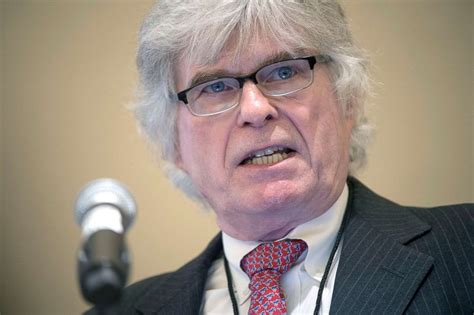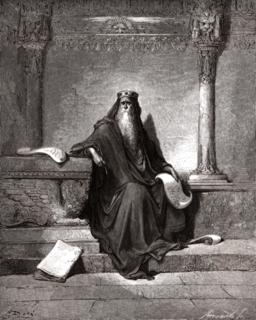A Quote by Michel de Montaigne
A wise man sees as much as he ought, not as much as he can.
Related Quotes
Much has been said of the loneliness of wisdom, and how much the Truth seeker becomes a pilgrim wandering from star to star. To the ignorant, the wise man is lonely because he abides in distant heights of the mind. But the wise man himself does not feel lonely. Wisdom brings him nearer to life; closer to the heart of the world than the foolish man can ever be. Bookishness may lead to loneliness, and scholarship may end in a battle of beliefs, but the wise man gazing off into space sees not an emptiness, but a space full of life, truth, and law.
What the immune system of man has in its advanced development is what we call immunological memory, so that once it sees something for the first time, when it sees it the second or the third time, it can respond against it in a way that's much more accelerated than when it sees it for the first time.
A man of genius is not a man who sees more than other men do. On the contrary, it is very often found that he is absentminded andobserves much less than other people.... Why is it that the public have such an exaggerated respect for him--after he is dead? The reason is that the man of genius understands the importance of the few things he sees.
There is no man ... however wise, who has not at some period of his youth said things, or lived a life, the memory of which is so unpleasant to him that he would gladly expunge it. And yet he ought not entirely to regret it, because he cannot be certain that he has indeed become a wise man -- so far as it is possible for any of us to be wise -- unless he has passed through all the fatuous or unwholesome incarnations by which that ultimate stage must be preceded.
All your trouble comes from lack of exercise. A man of your strength and constitution ought always to have kept physically active. So don't jibe at the very wise advice that sentences you to one hour's walk a day. You imagine the work of the mind takes place only in the brain; but you're much mistaken. It takes place in the legs as well.
People who know little are usually great talkers, while men who know much say little. It is plain that an ignorant person thinks everything he does know important, and he tells it to everybody. But a well-educated man is not so ready to display his learning; he would have too much to say, and he sees that there is much more to be said, so he holds his peace.
If a sound body and a sound mind, which is as much as to say health and virtue, are to be preferred before all other considerations, ought not men, in choosing a business either for themselves or children, to refuse such as are unwholesome for the body, and such as make a man too dependent, too much obliged to please others, and too much subjected to their humors in order to be recommended and get a livelihood?










































